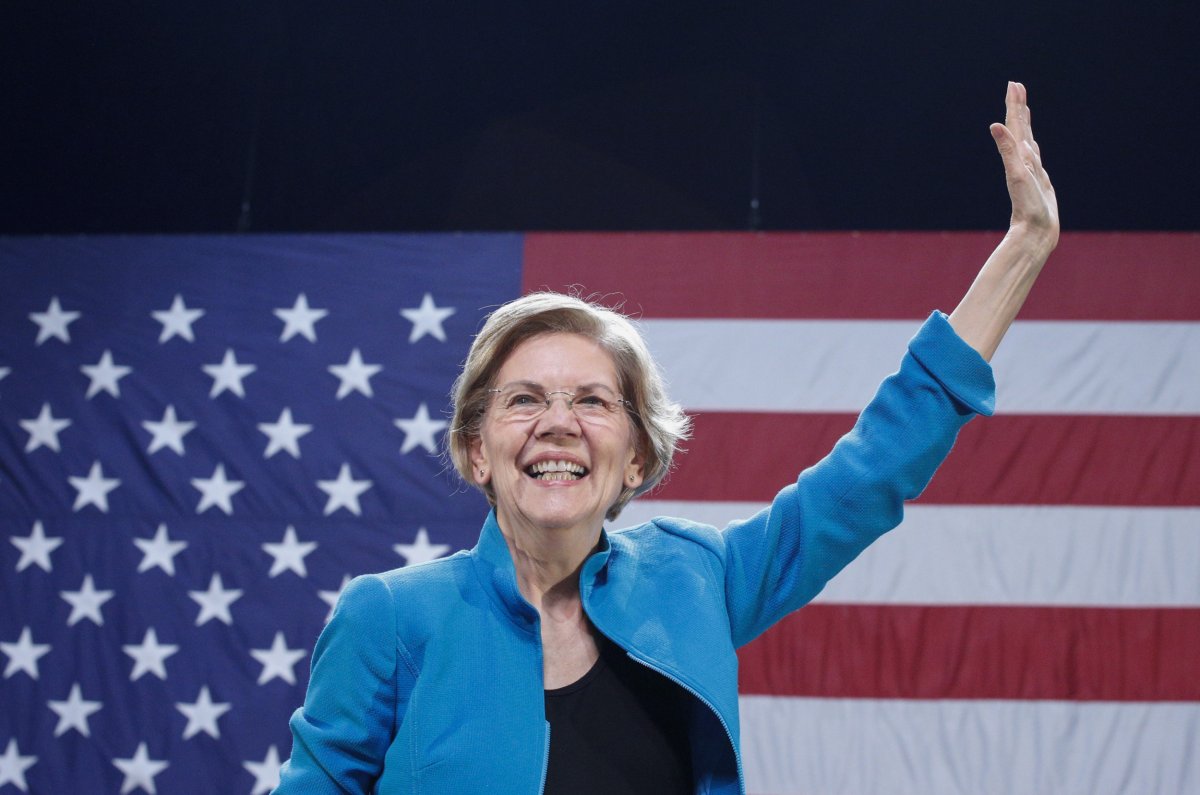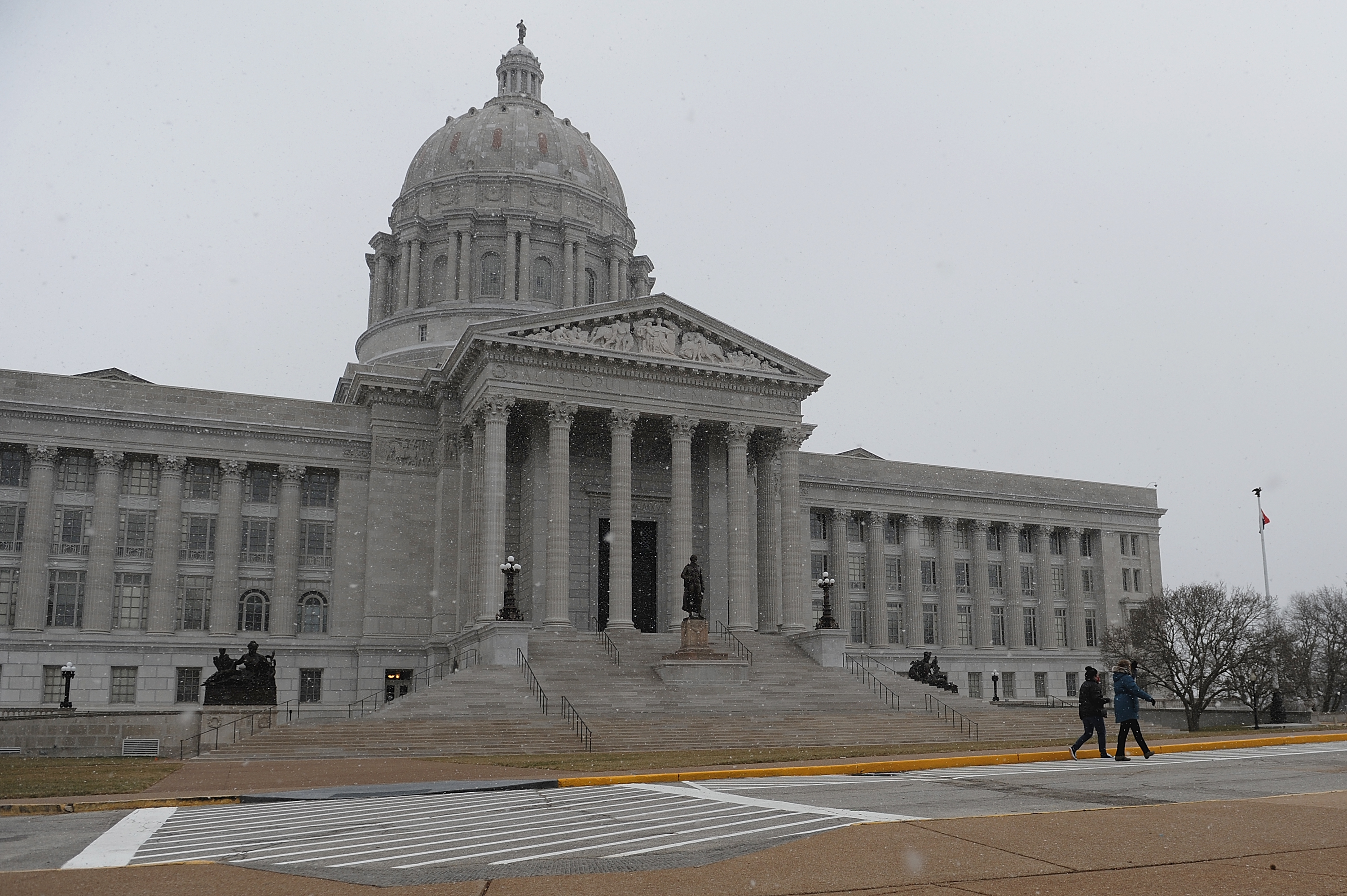
A majority of Americans support a wealth tax on the richest Americans, a new Reuters/Ipsos poll has found.
According to the survey released Friday, 64 percent of U.S. adults strongly or somewhat agreed with the proposition that "the very rich should contribute an extra share of their total wealth each year to support public programs."
Although not identical, these trends largely held true along party lines. While 77 percent of Democrats supported the idea, a 53-percent majority of Republicans backed it as well. Republican political leadership has traditionally been skeptical of proposals increasing taxation on the wealthiest Americans.
President Donald Trump disparaged a leading proposal from Senator Elizabeth Warren, one of the current front-runners in the Democratic Party's presidential primary, to levy a small tax on the wealth of Americans worth over $50 billion.
"You're not going to vote for the wealth tax. Yeah, let's take 100 percent of your wealth away," the president said in a speech to the Israeli-American Council in December. "Even if you don't like me, some of you don't. Some of you I don't like at all actually, and you're going to be my biggest supporters because you'll be out of business in about 15 minutes if they get it."
Trump himself has proven to be curious about a wealth tax, at least before he clinched the Republican presidential nomination almost four years ago. In 1999, he proposed a one-time 14.25 percent tax on fortunes over $10 million.
Warren's plan would extract two cents from every dollar on just the portions of individual fortunes exceeding $50 million. On the portions of assets worth over $1 billion, the tax would be raised to 6 percent.
Her campaign estimates that the tax would only impact 75,000 households and could generate as much as $3.75 trillion in revenue over a decade.
Senator Bernie Sanders has also proposed an analogous wealth tax, although it has been estimated to generate more than $1.5 trillion above Warren's plan over 10 years.
The Reuters/Ipsos poll found that the overall trend supporting a wealth tax held true across all age groups. In addition, 54 percent of Americans disagree with the notion that wealthy individuals should be allowed to keep their money "even if" that leads to greater economic inequality.
While among the most ambitious plans to tackle inequality beyond income, Warren's proposed wealth tax has produced research casting doubt on some of its largest promises.
A December study from the Wharton School at the University of Pennsylvania found that Warren's plan might only generate as much as $2.7 trillion over 10 years, one trillion below her campaign's rosiest estimates. In a statement at the time, Saloni Sharma, a campaign spokesperson, called the study's methodology "unsupportable."
In a preliminary assessment in November, Wharton also projected that imposing Warren's wealth tax could slow economic growth by 0.2 percentage points each year over a decade.
Notwithstanding any of the theoretical barriers to collecting on the proposal, a Warren administration may face significant challenges in merely trying to implement it, according to experts.
"Enforcing wealth taxes is notoriously difficult because it requires detection and valuation of people's assets, many of which may be held offshore," Ruth Mason, a tax law professor at the University of Virginia School of Law, said in a recent interview. "Some of the hardest assets to value are things like closely held stock or artwork."
However, Mason added that it is "important" to consider taxing wealth, despite practical hurdles, because valuable, taxable assets "represent an important store of wealth."
For her part, Warren and the campaign have steadfastly defended their wealth tax proposal, which was developed with the academic backing of economists Emmanuel Saez and Gabriel Zucman, both of the University of California, Berkeley.
"Our tax code focuses on taxing income, but a family's wealth is also an important measure of how much it has benefitted from the economy and its ability to pay taxes," her campaign said. "And judged against wealth, our tax system asks the rich to pay a lot less than everyone else."
Uncommon Knowledge
Newsweek is committed to challenging conventional wisdom and finding connections in the search for common ground.
Newsweek is committed to challenging conventional wisdom and finding connections in the search for common ground.
About the writer
Asher Stockler is a reporter for Newsweek covering the National Rifle Association and gun policy.
To read how Newsweek uses AI as a newsroom tool, Click here.






